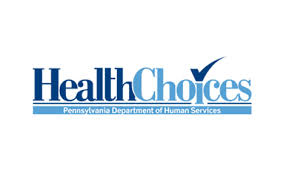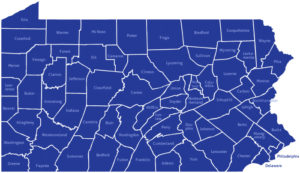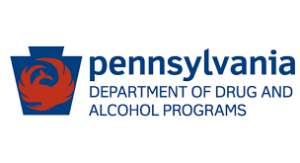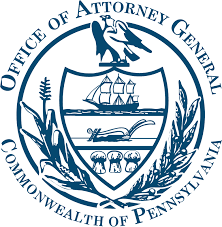PA Health Policy Update for Friday, June 10
The following is an update of selected state health policy developments in Pennsylvania for the week of June 6-10, 2022. (Some of the language used below is taken directly from state documents.)
 Governor Wolf
Governor Wolf
Governor Wolf has signed House Bill 889, which authorizes the State Board of Nursing to approve graduates of international nursing education programs to sit for the RN licensure examination provided that such international programs are determined to be equivalent to that which is required in Pennsylvania. The bill is now Act 22 of 2022.
General Assembly
- The state House and Senate convened for voting session this week in Harrisburg.
- The House passed on final consideration House Bill 2585, which prohibits the Department of Human Services from developing or using bidding or service zones that limit a health service corporation or hospital plan corporation contractor from submitting a bid. The bill will now be sent to the Senate for consideration. The Senate passed a companion bill, Senate Bill 1235, which will now be sent to the House for consideration.
- The House Insurance Committee held an informational meeting on Wednesday, June 8 to examine cybersecurity and insurance data security. Find a recording of the hearing here.
- The Senate Health & Human Services Committee met on June 7 and favorably reported the following bills.
- Senate Bill 571, which establishes a uniform time frame for distributing SNAP benefits.
- Senate Bill 1198, which seeks to promote and improve the availability of and access to assisted living residences.
- Senate Bill 1202, which requires health insurers to cover the use of medically prescribed pasteurized donor human milk in inpatient and outpatient settings for children under the age of 12 months.
- House Bill 2401, which makes permanent two COVID-19 waivers that permit non-physician practitioners to order and oversee orders for home health care services and permits the continued use of remote supervisory visits by registered nurses.
Find a recording of the hearing here.
- The Senate Veterans Affairs & Emergency Preparedness Committee met on Monday and favorably reported House Bill 2097, which makes permanent a COVID-19 regulatory waiver that permits certified emergency personnel, such as firefighters with specific first-aid, CPR, and emergency vehicle training, to drive ambulances with an EMT on board.
 Department of Human Services
Department of Human Services
- The Department of Human Services (DHS) has updated its Act 2 payment guidance to incorporate additional questions the department has received. The updated guidance provides further clarification on eligible staff, employer tax withholding, and more. Find the expanded guidance here.
- DHS has unveiled new provider enrollment portal enhancements designed to improve providers’ enrollment experience. Learn more about these enhancements here.
- DHS has issued a Medical Assistance Bulletin to inform providers enrolled in the Medical Assistance program that it has updated its blood lead reference value and updated the qualifications for environmental lead investigators to enroll in the program. Find that Medical Assistance Bulletin here.
- DHS has issued a Medical Assistance Bulletin to inform Federally Qualified Health Centers and Rural Health Clinics that it is implementing an alternative payment methodology to pay the Medical Assistance program fee schedule rate for administering COVID-19 vaccines during vaccine-only visits for dates of service on and after December 1, 2020 and that it will pay the enhanced Medical Assistance program fee schedule rate for administering COVID-19 vaccines to homebound Medical Assistance beneficiaries during vaccine-only visits for dates of service on and after April 1, 2021. Find that Medical Assistance Bulletin here.
- DHS has posted the minutes of the May 26 meeting of the Medical Assistance Advisory Committee. Find those minutes here.
 HealthChoices Changes
HealthChoices Changes
- Pennsylvania’s physical health HealthChoices program is in the process of undergoing a major change.
- Beginning on September 1, some of the Medical Assistance physical health HealthChoices managed care organizations within the five regional HealthChoices zones in the state will be changing. Some of the plans will be serving different counties and about 500,000 Medical Assistance recipients will need to select a new plan. Learn more about the changes to come and their implications in this DHS notice.
- To facilitate this transition, DHS addresses the HealthChoices changes in the latest edition of its Impact newsletter. The newsletter explains the changes to come, lists important dates in the transition, and provides links to additional resources. Find the newsletter here.
- One of those additional resources is a toolkit for HealthChoices participants and their providers that explains the situation, lists important dates, features a map of the state’s HealthChoices zones and a list of the managed care organizations serving each, and includes an FAQ with additional information.
- Another DHS resource explains the process of selecting a new plan – for those whose current plans will not be able to serve them after September 1 – and outlines what HealthChoices participants will need to do to enroll in a new plan.
- Another link offers Medical Assistance beneficiaries a toll-free number to call for help with understanding the situation and selecting a new managed care plan, if necessary.
- Other tools enable Medical Assistance beneficiaries to compare plans and offer tips on choosing a new plan.
Department of Health
- The Department of Health (DOH) has issued a health advisory alerting providers to an anticipated seasonal increase in Legionella infections combined with a potential increase in cases resulting from changing building occupancies. The advisory describes the symptoms of Legionella infection, risk factors, testing, and treatment and provides links to additional resources. Find the health advisory here.
- DOH has sent a reminder to long-term-care facilities about the outpatient COVID-19 therapeutics available to them and how to obtain these medications through the agency’s health care partner portal.
- DOH has shared recommendations for residents of long-term-care facilities (a Word download) to receive a second COVID-19 vaccine booster this summer based on updated CDC guidance.
COVID-19: By the Numbers
- The Department of Health has issued its monthly report on COVID-19 trends in Pennsylvania. Find it here.
- For the second consecutive week COVID-19 case counts fell, declining from a seven-day average of 3552 on June 1 to 3228 on June 8, a nine percent decline.
- The seven-day average of COVID-19-related deaths rose, however, from 15 to 23, over the same period of time.
- The number of Pennsylvanians hospitalized with COVID-19 and on ventilators and in hospital intensive care units remained mostly steady over the past week.
- Sixty-five of Pennsylvania’s 67 counties are currently experiencing high rates of community transmission of COVID-19. The exceptions were Juniata County, with a moderate rate of community transmission, and Fulton County, with a substantial rate.
 Pennsylvania Health Care Cost Containment Council (PHC4)
Pennsylvania Health Care Cost Containment Council (PHC4)
PHC4 has published volume one of its annual analysis of the financial performance of Pennsylvania’s acute-care hospitals. The analysis found that hospital total margins across the state increased 7.84 percentage points, from 3.93 percent in FY 2020 to 11.77 percent in FY 2021, and statewide operating margins increased 4.18 percentage points, from 3.73 percent in FY 2020 to 7.91 percent in FY 2021. The analysis also found that in FY 2021, 25 percent of the state’s acute-care hospitals posted a negative total margin, 10 percent posted a total margin between 0 percent and four percent, and the remaining 65 percent posted a total margin higher than four percent. The analysis found that for FY 2021, acute-care hospitals’ uncompensated care rose from $832 million in the previous year to $866 million, an increase of 4.1 percent. Go here to find a PHC4 news release describing the agency’s report, the report itself, and a link to downloadable data from the report.
Stakeholder Events
Rural Health Redesign Center Authority – June 21
The board of the Pennsylvania Rural Health Redesign Center Authority will meet virtually on Tuesday, June 21 at 10:00. Learn more about the board and how to participate in this meet from this Pennsylvania Bulletin notice.
Department of Health – Preventative Health and Health Services Block Grant Application for Federal Fiscal Year 2022; Public Hearing – June 21
The Department of Health is making available copies of its proposed Preventive Health and Health Services Block Grant Application for federal FY 2022. This block grant application shall serve as the state’s request to the U.S. Department of Health and Human Services for block grant funding to address the Healthy People 2030 Health Status Objectives. A public hearing will be held virtually on June 21 at 10:00. Learn more about the hearing, how to participate, and how to obtain a copy of the grant funding application from this Pennsylvania Bulletin notice.
Department of Human Services – Long-Term Care Learning Network/Nursing Facilities – June 23
DHS’s Long-Term Care Learning Network, part of its quality strategy for nursing facilities, is offering in collaboration with the Community HealthChoices managed care organizations and the Jewish Healthcare Foundation a “learning collaborative” webinar in which participants in past Long-Term Care Learning Network events share information about best practices for avoiding hospitalizations from nursing homes. The webinar will be held on Thursday, June 23 at 2:00 and the deadline to sign up to share best practices is June 1. For further information about the webinar, sharing best practices, and participating virtually, go here.
Patient Safety Authority – June 23
The board of the Patient Safety Authority will meet virtually on Thursday, June 23 at 1:00. Registration is required. Learn about how to participate in the meeting from this Pennsylvania Bulletin notice.
DHS – Medical Assistance Advisory Committee – Managed Long-Term Services and Supports Subcommittee Meeting – July 6
The managed long-term services and supports subcommittee of DHS’s Medical Assistance Advisory Committee will meet in Harrisburg on Wednesday, July 6 at 10:00; the meeting also will be available virtually. For further information about the location of the meeting and how to participate virtually, see this announcement.
 General Assembly
General Assembly Department of Health
Department of Health Department of Drug and Alcohol Programs
Department of Drug and Alcohol Programs Office of the Attorney General
Office of the Attorney General Department of Health
Department of Health Primary Election
Primary Election Stakeholder Events
Stakeholder Events Included in this month’s issue are articles about:
Included in this month’s issue are articles about: General Assembly
General Assembly Governor Wolf
Governor Wolf COVID-19: By the Numbers
COVID-19: By the Numbers General Assembly
General Assembly